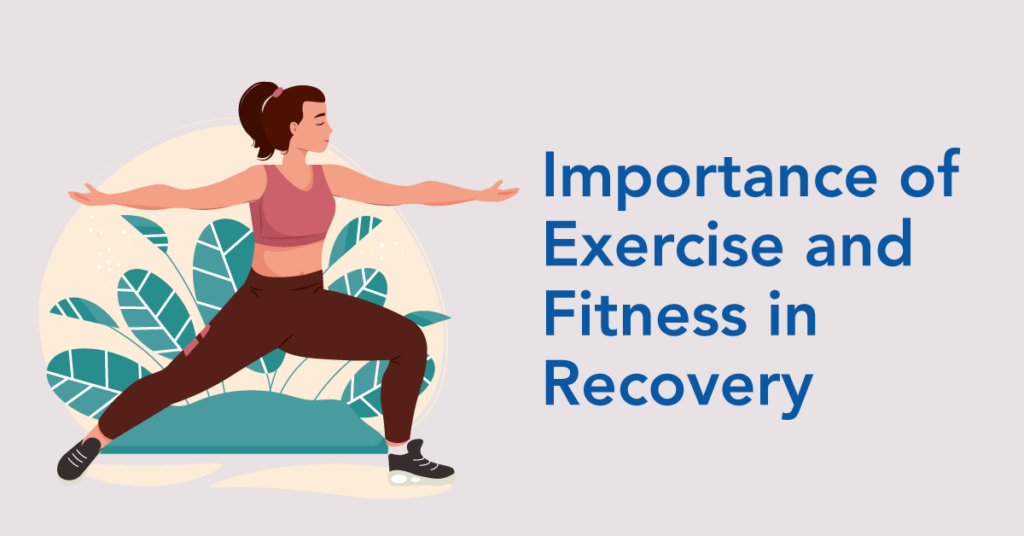Most people know that being active and exercising regularly are important for overall health, but many don’t make fitness a priority. Only around 25% of U.S. adults and 20% of adolescents get the recommended amount of aerobic and strength exercise. For those who don’t, a lack of exercise can have a significant impact on mental health — especially when it’s combined with a substance abuse struggle.
Keep reading to learn how your physical and mental health are connected and why placing an emphasis on fitness in recovery is so important.
The Connection Between Physical and Mental Health
Your mental and physical health impact each other. Research shows that people who have mental health issues have a higher likelihood of physical problems, such as stroke and diabetes. Those with chronic illnesses are also more likely to experience depression, anxiety and other mental health challenges.
Factors such as genetics, family support and the quality of your social connections can affect your health. However, prioritizing your physical and mental wellness is one of the most important things you can do to help reduce the impact of those factors.
How Exercise Supports Addiction Recovery
Engaging in physical activity increases endorphins, which are “feel good” chemicals. But the exercise benefits for mental health go beyond a short-term “runner’s high” for those in recovery. Exercising regularly can improve self-confidence and self-esteem and reduce risks associated with anxiety and depression, potentially making it easier to stay sober.
Showing up for yourself by exercising on a regular basis can also be an important part of learning to prioritize your own care and needs and trust yourself to do what you say you’re going to do.
Types of Physical Activities to Incorporate
The best activities to engage in are the ones you truly enjoy — those are the ones you’ll actually keep doing. For example, running can be a great way to improve cardiovascular health and release endorphins. However, if you don’t have the energy in recovery or the idea of a 5K makes you want to go back to bed, it’s probably not the exercise for you. Think about what you liked to do as a child, such as dancing or a team sport, and consider whether you’d like to pick that activity back up.
When choosing an exercise, it can help to pick something that’s low-impact and that you can do at your own pace. Walking, biking and swimming are good options, and being in the water can have a calming effect for many people.
If you’re finding it difficult to stay present and focused, yoga can help calm your nervous system while providing physical benefits. Strength training can help relieve stress, and concentrating on form and clean reps can help you learn to take things one moment at a time.
Building a Sustainable Routine for Fitness in Recovery
When you’re starting on the path of recovery, it’s common to want a fresh start in all areas of your life, including your health and fitness. But going too hard too soon could backfire, leading to mental burnout and physical injury. Build a sustainable fitness routine by:
- Starting slow. If your energy levels and mood are low, consider starting with something small, such as a 10-minute daily. Even 5 minutes a day is better than nothing, and starting slow can help you create a habit you can build on later.
- Be willing to adjust. If you wake up and find you’re not in the mental or physical place for a hard workout, swap it out for something lighter. If you try a new exercise class a few times and it’s just not your thing, try something different.
- Remember that it’s a long game. It can take time to figure out which activities you enjoy that give you the most mental health benefits. Just like recovery, keeping your body and mind healthy is a lifelong journey.
Start Walking Toward Recovery Today
Prioritizing your addiction recovery and health starts with connecting to those who can support you on your journey. Reach out to the National Rehab Hotline to talk to a trained crisis specialist who can listen to your story and connect you to local resources.

